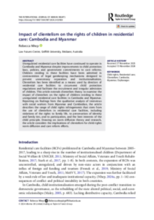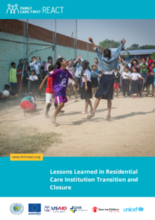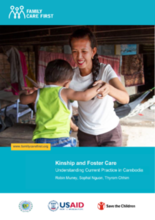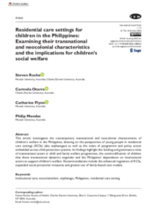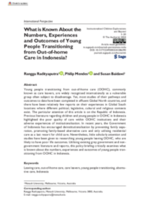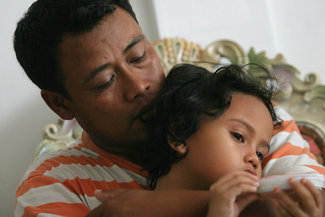

Displaying 21 - 30 of 752
The main objective of this assessment and report is to gain knowledge about children with disabilities without family support, or at risk of being so, and the alternative care arrangements available for these children in the Philippines. In addition, whether there is scope for improvement of alternative care measures in the Philippines in line with international standards.
This article seeks to learn more about the experiences and perspectives of those who spent their childhoods in institutional care in Thailand and how they compare with international research on this topic.
The objective of this study is to document lessons learned from Family Care First (FCF) | Responsive and Effective Child Welfare System Transformation (REACT) members in Cambodia, as well as the literature from others working on transition globally, to create evidence-based recommendations to inform future transitions and closure of residential care institutions in Cambodia at scale.
This study was conducted by Family Care First (FCF), to enhance the understanding of common practices of kinship and foster care in Cambodia and identify gaps and good practices that are scalable to promote quality options for family based alternative care programs. FCF is a network of global organizations working together to support children to live in safe, nurturing family-based care.
Case studies from the Global South provide insights on how to effectively support children who have experienced violence.
This article investigates the contemporary transnational and neocolonial characteristics of children’s welfare in the Philippines, drawing on the perspectives of young people in residential care settings as well as the views of programme and policy actors embedded across child protection systems.
Using existing grey government and nongovernment literature and reports, this policy briefing critically examines what is known about the numbers, experiences and outcomes of young people transitioning from Out-of-Home-Care in Indonesia.
SELANGOR – A 23-year-old man has been sentenced to 10 years in jail for abusing several boys under his care. The sentence was handed down after Muhammad Barur Rahim Hisam pleaded guilty to four charges levelled against him.
The Alliance is accepting applicants to join the Training of Facilitators on Engaging Community Volunteers in Case Management in Bangkok, Thailand in November 2024. Deadline to apply is September 22.

